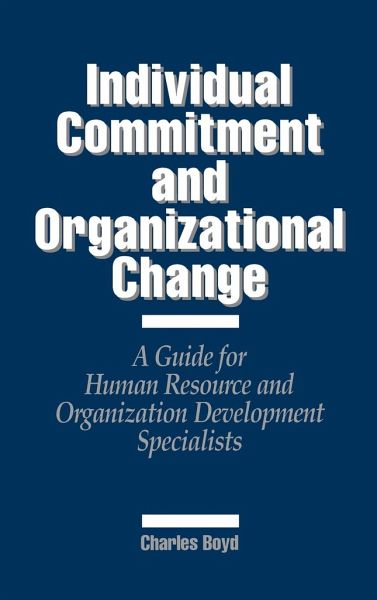
Individual Commitment and Organizational Change
A Guide for Human Resource and Organization Development Specialists
Versandkostenfrei!
Versandfertig in 1-2 Wochen
87,99 €
inkl. MwSt.

PAYBACK Punkte
44 °P sammeln!
Many writers assume that employees will be as committed as managers to changing work organizations to meet the demands of global competition. Charles Boyd discusses reasons why many employees do not commit to these changes. He explains how an oversized menu of life choices complicates many people's lives, with profound changes in the family, government, organized religion, and education adding to many people's confusion. These problems cause employees to reject still more change at work, making it difficult for managers to get the commitment they need to the changes they must make. Boyd explor...
Many writers assume that employees will be as committed as managers to changing work organizations to meet the demands of global competition. Charles Boyd discusses reasons why many employees do not commit to these changes. He explains how an oversized menu of life choices complicates many people's lives, with profound changes in the family, government, organized religion, and education adding to many people's confusion. These problems cause employees to reject still more change at work, making it difficult for managers to get the commitment they need to the changes they must make. Boyd explores the reasons for the changes in personal lives and in our society's institutions. He offers ways managers can get the commitment they need for organizational change. The book opens with a thorough discussion of the forces making organizational change necessary. Boyd discusses the barriers to commitment inside and outside organizations that slow or block needed changes, and shows how managers can overcome these barriers. The book gives examples of organizations that gain commitment to change by using good compensation plans and by tying goals to employee achievement. Boyd discusses the importance of developing a more productive work force for global markets and how to do so. He concludes by describing the star organization, a type designed to meet employees' needs and today's changing economic demands. This book is an important guide for human resource managers, chief executive officers, and college and public libraries.














